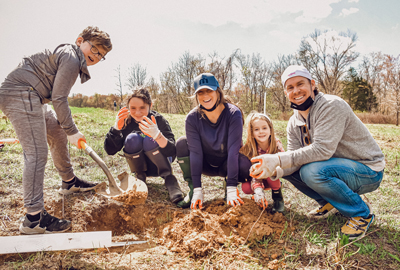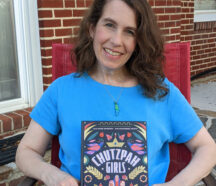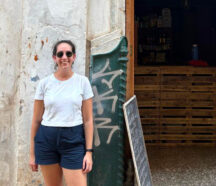Bringing Judaism into
the Spring Garden

In Judaism, the act of planting and tending to nature holds deep significance, reflecting both spiritual and ethical principles. One concept intertwined with planting is tikkun olam, “repairing the world.”
This principle emphasizes the Jewish obligation to actively participate in the betterment of society and the environment. By planting trees, flowers and vegetables, individuals contribute to the beautification of the earth and the sustenance of life. This aligns with the Jewish value of bal tashchit, which prohibits wastefulness and encourages conservation.
Just as spring represents a time of growth and renewal in nature, it also serves as a reminder for individuals to reflect on their actions and strive towards positive change. Through the simple act of planting, Jews engage in a profound connection to their faith, their community, and the natural world, embodying the timeless teachings of Judaism in their daily lives. Pearlstone, an agency of The Associated, shares with us how we can bring Judaism into our Spring Garden.
Passover and Spring Planting
Not only does spring planting occur around Earth Day but it also aligns with the Jewish calendar, where the holiday of Passover falls during this season. During Passover, Jews reflect on themes of freedom, redemption and renewal, which are intertwined with the cycles of nature. Planting during this springtime symbolizes renewal, echoing those Passover themes.
Parsley, known as karpas in Hebrew, holds significance during the Passover Seder, the ceremonial meal held on the first two nights of Passover.
During the Passover Seder, parsley is dipped in salt water. The parsley represents springtime and renewal, reflecting the theme of rebirth and new beginnings central to the Passover story.
Additionally, the dipping of the parsley in salt water symbolizes the tears shed by the Israelites during their enslavement in Egypt, underscoring the hardships endured before their liberation. We understand that there is a balance between good times and hard times.
This simple yet profound ritual serves as a reminder of the resilience of the Jewish people, the importance of freedom, and the hope for a brighter future. It reinforces the connection between past and present, uniting individuals in their shared history and faith. Thus, parsley during Passover embodies the enduring wisdom and spiritual significance inherent in Jewish traditions.
The parsley harvested at Pearlstone will be used at the Pesach retreat, where 200 people will gather to celebrate the holiday together on our beautiful 180-acre campus.
While parsley is a mainstay in the kitchen and on our plates, it can be a little tricky to grow for the home gardener. Parsley is a member of the carrot family and requires cooler temperatures and consistent moisture to germinate.
Grow Your Own Parsley
Here are instructions from Lindsay Crisler, our four-season farmer at Pearlstone.

To grow indoors:
Plant parsley seeds in a tray or pots filled with compost rich potting soil1/4″ deep and keep them consistently moist at 65-70 degrees. Once germinated immediately move them into direct sunlight. To move these plants outside, make sure to move them out on a day when temperatures inside and outside are similar. Give your plants at least seven days outside in their growing pots to adjust to being outdoors before transplanting outside.
To grow outdoors:
To direct seed in the garden, until soil can be worked, and danger of frost is passed. We usually estimate that day to be April 15. Sow your parsley seeds in a shallow trench about 1/2″-1/4″ deep, cover with soil and keep moist.
Parsley can take up to 3 weeks to germinate so don’t worry if you don’t give up if you don’t see any germination for several days! Be mindful not to overwater and wash your seeds out, especially if you’re growing outside. A nice even stream of water from overhead is sufficient. Parsley seeded in April will be ready to harvest by the end of June and will continue to produce through the season.
We recommend buying seeds from High Mowing Organics, Fedco or Johnny’s Selected Seeds. You’ll be able to find lots of great growing information on their websites too.
Subscribe to our newsletter
The Associated is a home for everyone in the Baltimore Jewish community. We offer several email lists to help people find a community, engage with their peers and support Jewish journeys around the world.
Join Our Mailing ListKeep Reading
Add Impact to Your Inbox
Sign up for our newsletter
Subscribe to our newsletter
The Associated is a home for everyone in the Baltimore Jewish community. We offer several email lists to help people find a community, engage with their peers and support Jewish journeys around the world.
Join Our Mailing List






 Please Wait while we loading your video.
Please Wait while we loading your video.